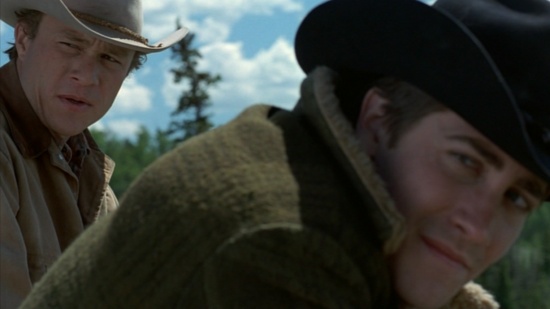Review – Brokeback Mountain (Ang Lee, 2005)

The first thing to get out of the way about Ang Lee’s wonderful Brokeback Mountain is this: it isn’t controversial. I don’t mean that there’s no controversy surrounding it, because unfortunately there is, but the film itself makes no point that should be contentious. It’s a love story that happens to be about two men in 1960s Wyoming, but it isn’t a political tract. Prejudice against homosexuals is a historical circumstance that the film acknowledges, but it’s not really the primary subject matter: it serves much the same plot function that the taboo of a Montague courting a Capulet did in Romeo and Juliet. The film doesn’t treat homosexuality as sensational or taboo; it isn’t overtly political; no politics are preached; and it doesn’t demonise any group or person. The controversy about the film arises purely from the prejudice audiences bring to it: those who have a problem with homosexuality will have a problem with Brokeback Mountain, but nobody else will. Indeed, as Phillipa Hawker pointed out in her review for The Age, it is perhaps the old-fashioned nature of the film that has actually most disturbed conservatives and homophobes. If Lee had treated his material as shocking, it would probably have passed with less comment. Instead, the film simply takes acceptance of its subject matter as a given, and aims clearly at mainstream audiences.